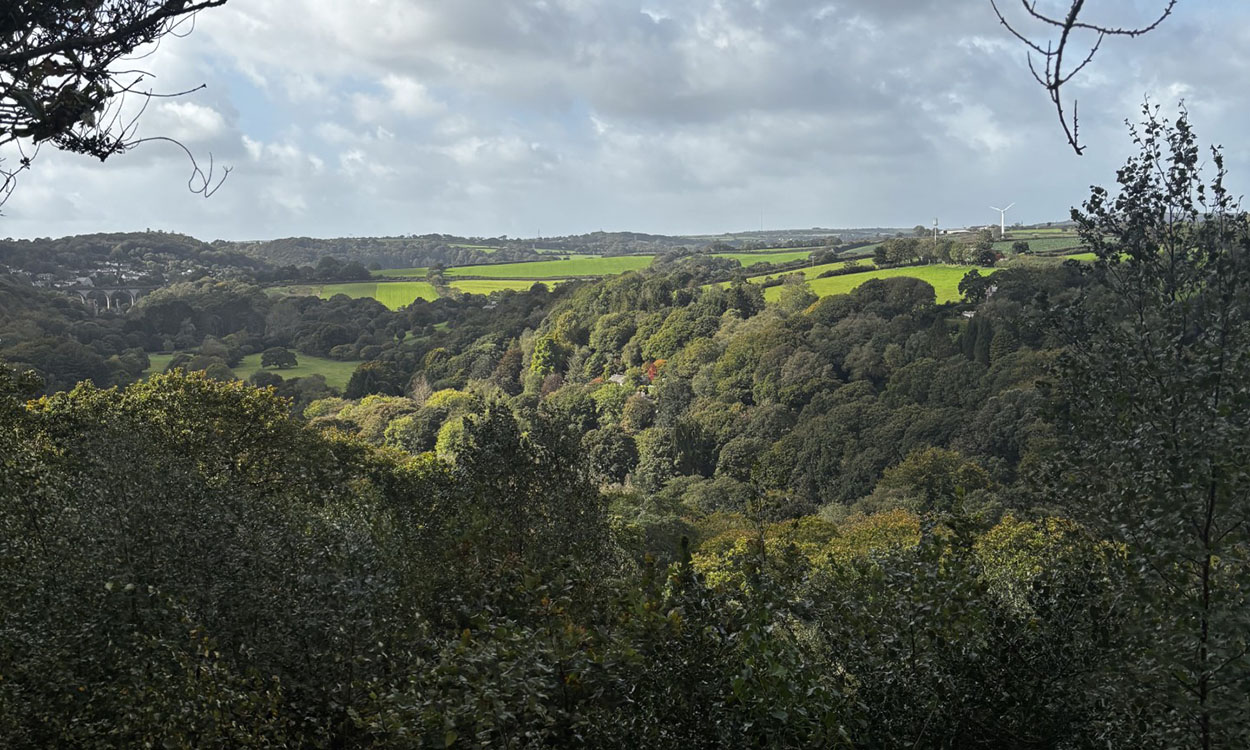
A wooded valley on the outskirts of Truro. (Photo credits: Katie Winsor)
As the Planning and Infrastructure Bill is in the final stages of deliberation in parliament this week, many local wildlife conservationists are deeply concerned about what it may mean for the security of vulnerable species in Cornwall.
In short, this legislation aims to provide developers with fewer legal challenges over planning restrictions through the introduction of environmental delivery plans (EDPs) in place of individual site assessments.
Because of this, since its third reading on Monday, many wildlife experts have been in uproar, despite the proposal being described in parliament as aiming to ‘deliver for both the environment and the people in the UK’.
Natasha Collings-Costello, Managing Director of Cornwall Environmental Consultants and a passionate Ecologist, shares that she feels this bill instead would weaken environmental protection in the future.
She later describes that her biggest concern is with Part three, fearing that it could push some of our native species to extinction.
This is through what she describes as a ‘cash to trash’ system within the proposed Nature restoration fund.
Through this payment scheme, developers will be able to pay to avoid assessments for the area where they plan to build, despite the money not being directed to benefit the wildlife that could be affected.
1 in 6 British species are already at risk of extinction, which means this bill could allow for essential habitats to be destroyed.
Natasha went on to say that ‘dormice, badgers, bats and rare invertebrates’ are some of the many species whose would be left extremely vulnerable if their habitats were lost.
This would reduce the country’s high biodiversity, which is essential for maintaining local ecosystems.
Highlighting how ancient woodlands, for example, would take 25 years to regrow substantially if they were destroyed.
However, she implied that she understood the economic reasoning behind it, especially being mindful of the country’s housing crisis, where regular new developments are essential if it’s to improve in the next 5 years.
Yet, Natasha indicated that there is ‘no evidence that nature and protective species are holding up any applications and stopping the delivery of housing’ and feels that it could have ‘severe impacts’ on protected species.
Especially due to the House of Lords widely discussing that ’less than 2% of planning applications have been held up’ by anything in relation to the environment for many it feels like it’s creating a secondary problem.
Due to its current stage of implementation, the future of the bill is still uncertain.
Especially with Cornwall’s biodiversity and extraordinary landscape being a big part of its identity, it’s important to be reassured that its future is safe.
‘Nature isn’t the blocker, ’Natasha stated,’ there’s no evidence that nature is the blocker.’